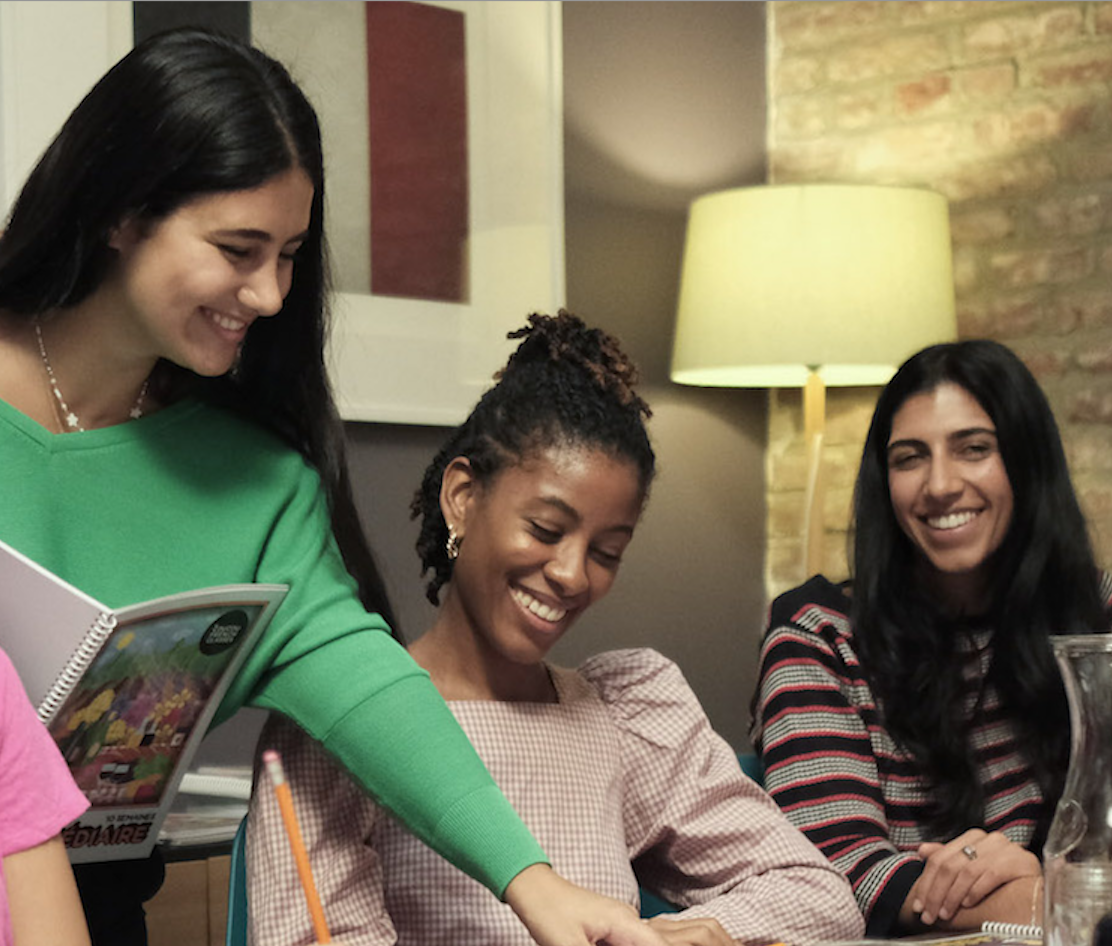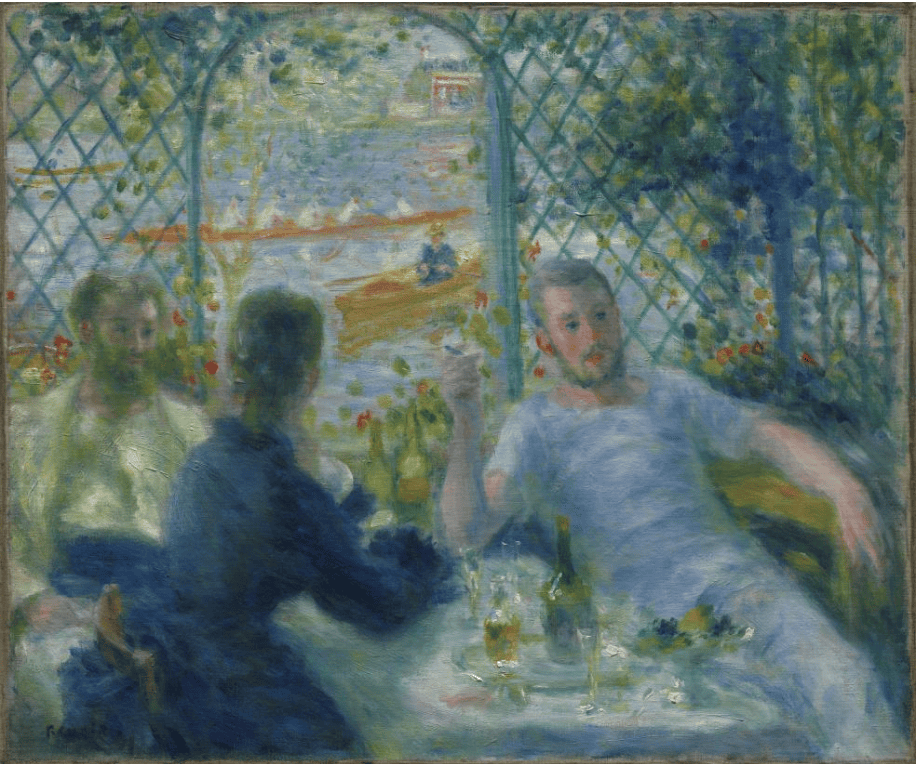One of the most important things to me, as a teacher is helping students build up their self confidence and dare to speak more. That’s why I’m always a little sad whenever I have to say “Mmmh, we don’t really say that anymore, sorry!”
To avoid this situation, I’ve compiled the top five expressions that non-native French speakers usually know, but aren’t commonly used by French people anymore.
Stay tuned for the upcoming second part of this article!
By Florian Fructuoso
“COMME ÇI COMME ÇA”
Probably one of French learners’ favorite expressions, “comme-ci, comme-ça” actually comes from the Italian “cosi cosi” that translates to “so so”. Nowadays, we don’t really use “comme-ci comme-ca” to talk about how we’re doing or how things are going.
If you want to express that things are going okay—not especially good or bad—you can pick one of these expressions:
- If you’re more on the positive side of things,say “ça peut aller” to indicate that things are going okay, but you’re not necessarily jumping for joy.
- If you’re more on the negative side of things (a.k.a. the French side of things), a “bof” will signal to the person you’re speaking to that you’re feeling a bit “meh” about how things are going.
- You’ll also hear French people say “ça se passe”, instead of “comme-ci comme-ça”.
Ex: “Comment ça se passe avec ton nouveau patron ?”
(“How’s it going with your new boss?”)
“Ça se passe !”
(“It’s going okay. Not good, not bad!”)
When asked about how you’re doing, you can double the “ça va” for a neutral response.
Ex: “Comment tu te sens aujourd’hui ?”
(“How are you feeling today?)
“Ça va, ça va !”
(“Good, good!”)
“Garçon !”
The image of French people calling a waiter “garçon” in a cafe or restaurant is pretty ingrained in the collective consciousness of non-natives.
Although it used to be an acceptable way to catch a waiter’s attention, it’s now perceived as disrespectful. Instead, a neutral and polite “excusez-moi” or “s’il vous plaît ?” will do the job.
“Ooh la la”
If I had a dollar for every time someone said “ooh la la” after telling them I was French, Bezos and Musk would be worried about me. But it’s not that we don’t say “ooh la la”: First of all, we say “OH la la”, not “OOH”, and more importantly, we don’t use it to be cheeky or flirty. We mostly use it to express surprise with a dash of shock, annoyance, discouragement or other similar feelings.
Ex: “J’ai travaillé 15 heures aujourd’hui.” (“I worked 15 hours today.”)
“Oh la la mais c’est trop ! Tu dois te reposer !” (“Oh that’s too much! You have to rest up!”)
Ex: “Oh la la, j’ai encore 10 dossiers à finir.”
( “Gosh, I still have 10 files to finish.”)
Ex: “Tout va mal dans ma vie. Mon travail est trop difficile. Ma vie amoureuse est vide.”
(“Nothing’s going well in my life. My job’s too hard. My love life is empty.”
“ Oh la la, arrête de te plaindre !”
(“Oh come on! Stop complaining!”)
“Zut !”
You might have never seen this word before; if that’s the case, just scroll down to the next paragraph, you’re not missing anything!
But, if you’re familiar with “zut”, you know that it’s an interjection meant to describe an unpleasant situation. And although I wouldn’t say it’s completely obsolete, I’d advise you not to use it if you want to sound conversational.
“Zut” is a little bit like the equivalent of your great aunt saying “shoot” to avoid swearing. People won’t look at you in a weird way if you use it, but you might prefer a straight forward “merde !” (Crap! or Shit!) or a more vulgar (but one of our favorite swear words) “putain !” (Fuck!).
Instead of “Zut ! J’ai raté mon bus !” (“Shoot! I missed my bus!”) ; try “Merde/Putain ! J’ai raté mon bus!” (“Crap/Fuck! I missed my bus!”)
“Sacrebleu”
“Sacrebleu” is not something to say if you want to show French speakers you’re learning seriously.
Learners often pronounce it “sacré”, which is indeed the French root of the expression, but back in the seventeenth century, it was pronounced Sacrebleu (Sacreuh-bleuh). Sacrebleu (“Sacred blue”) is a minced oath for Sacredieu (“Sacred God”). But why the change? What’s wrong with calling God sacred? Well, the Latin origin of Sacre, “sacrare”, can be used for both honoring and cursing, which made the expression “Sacredieu” blasphemous.
To avoid this blasphemy, the name of God was replaced with a rhyme: “bleu”.
Although Sacrebleu was one of many very popular curse words used in the seventeenth and eighteenth centuries, it lost its momentum and stopped being used on a daily basis.
Instead of Sacrebleu, you can use one of the alternatives for “zut” to express impatience and annoyance, or a simple “Waouh !” for surprise and admiration.





